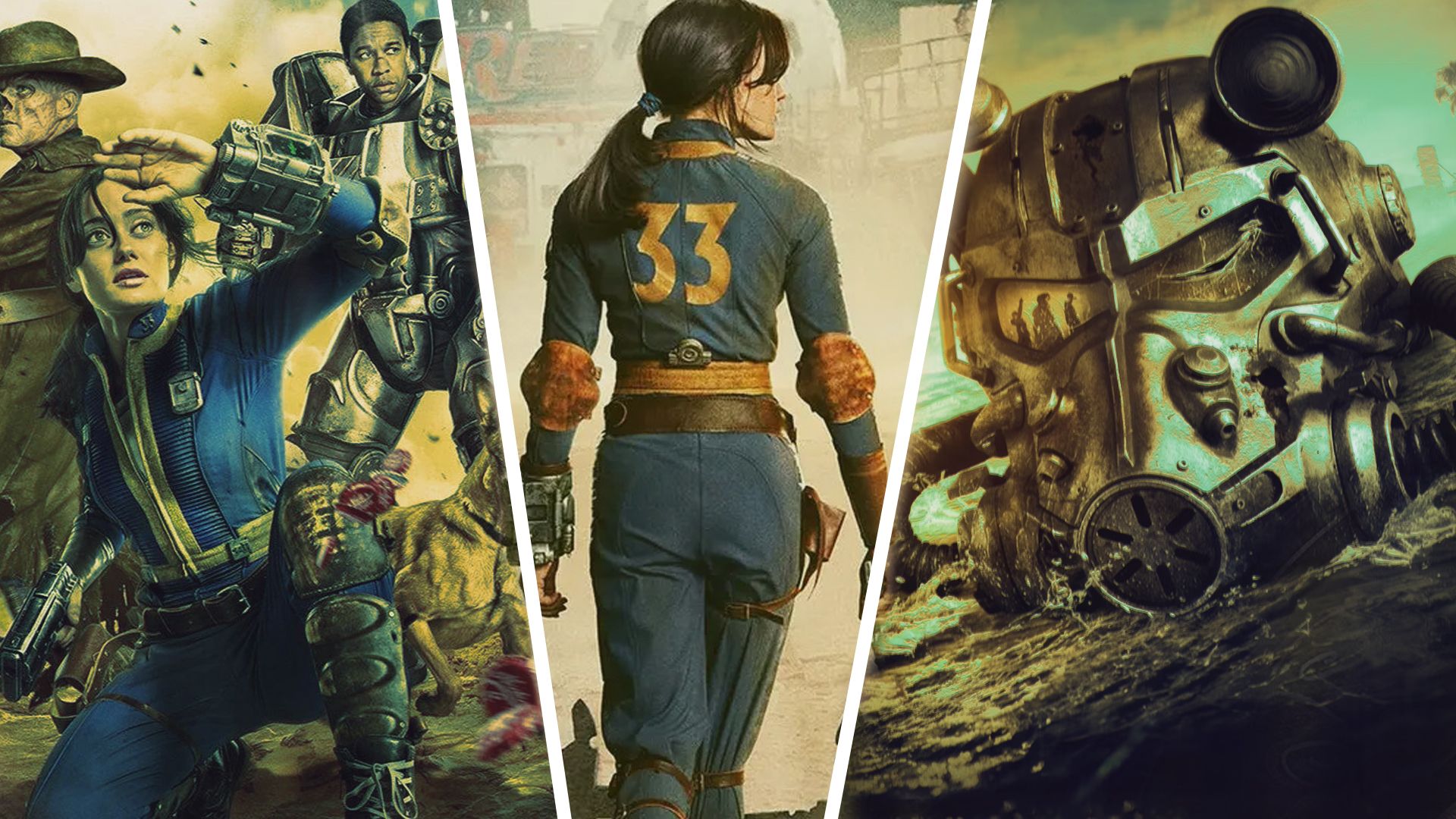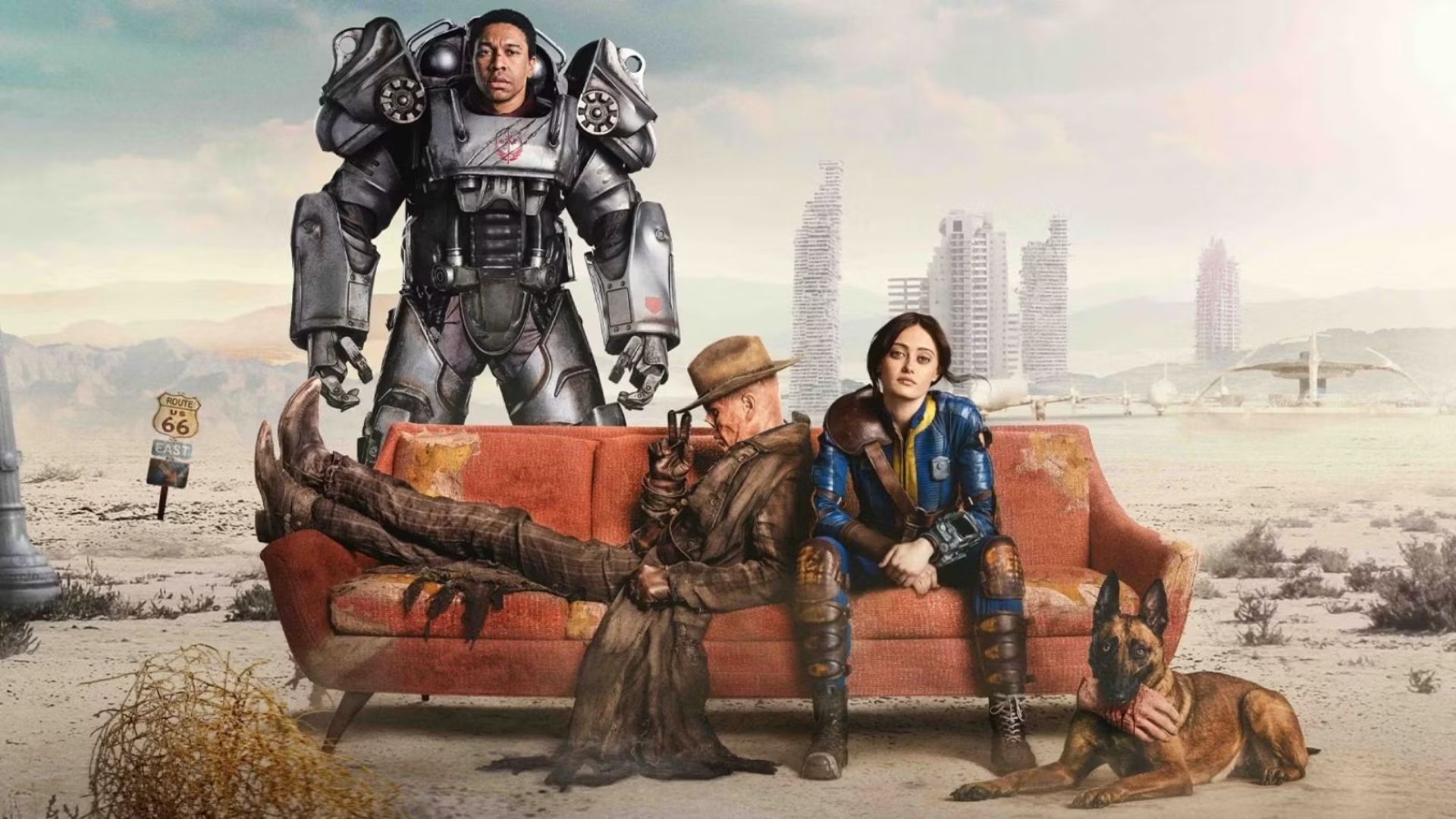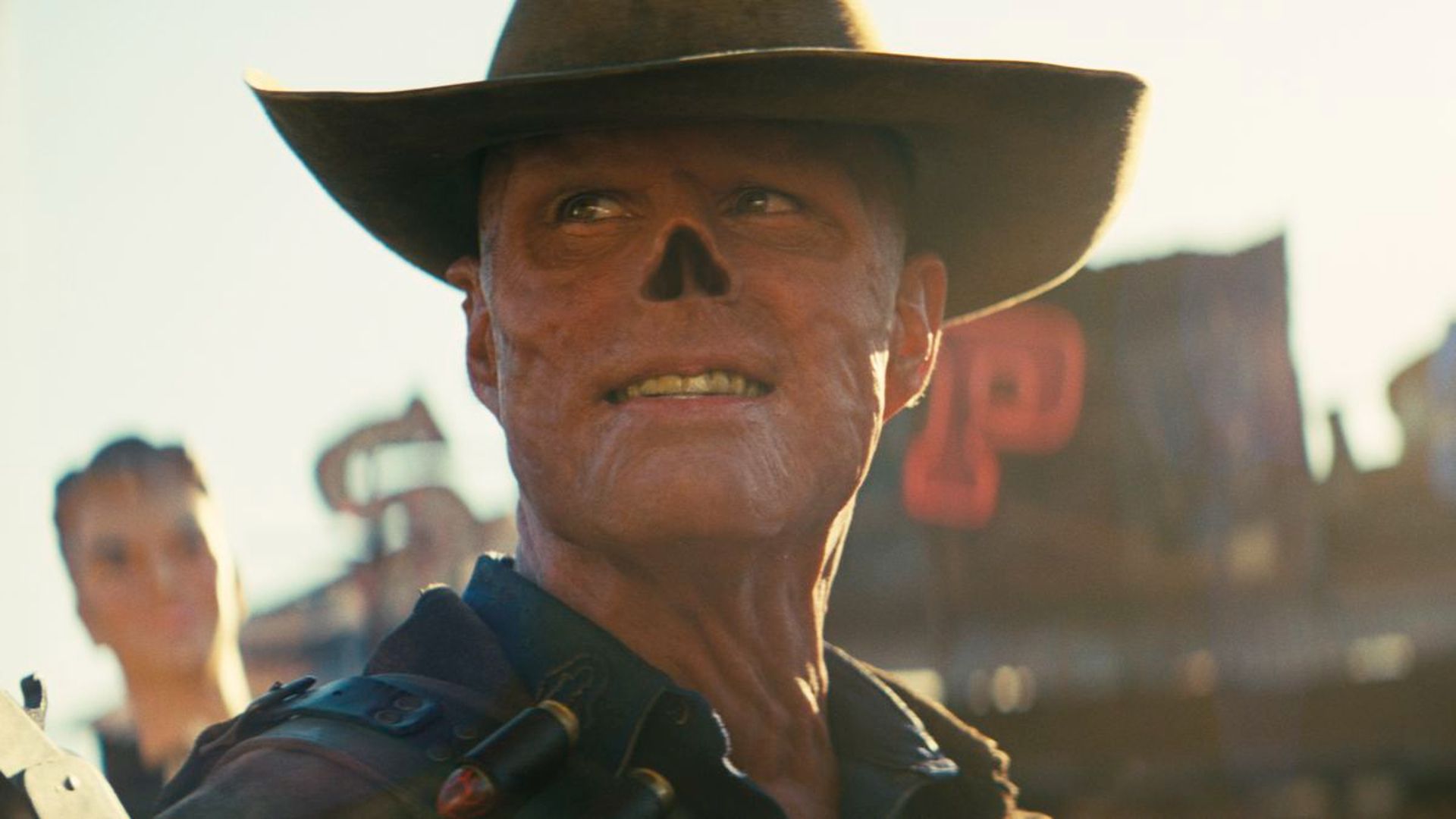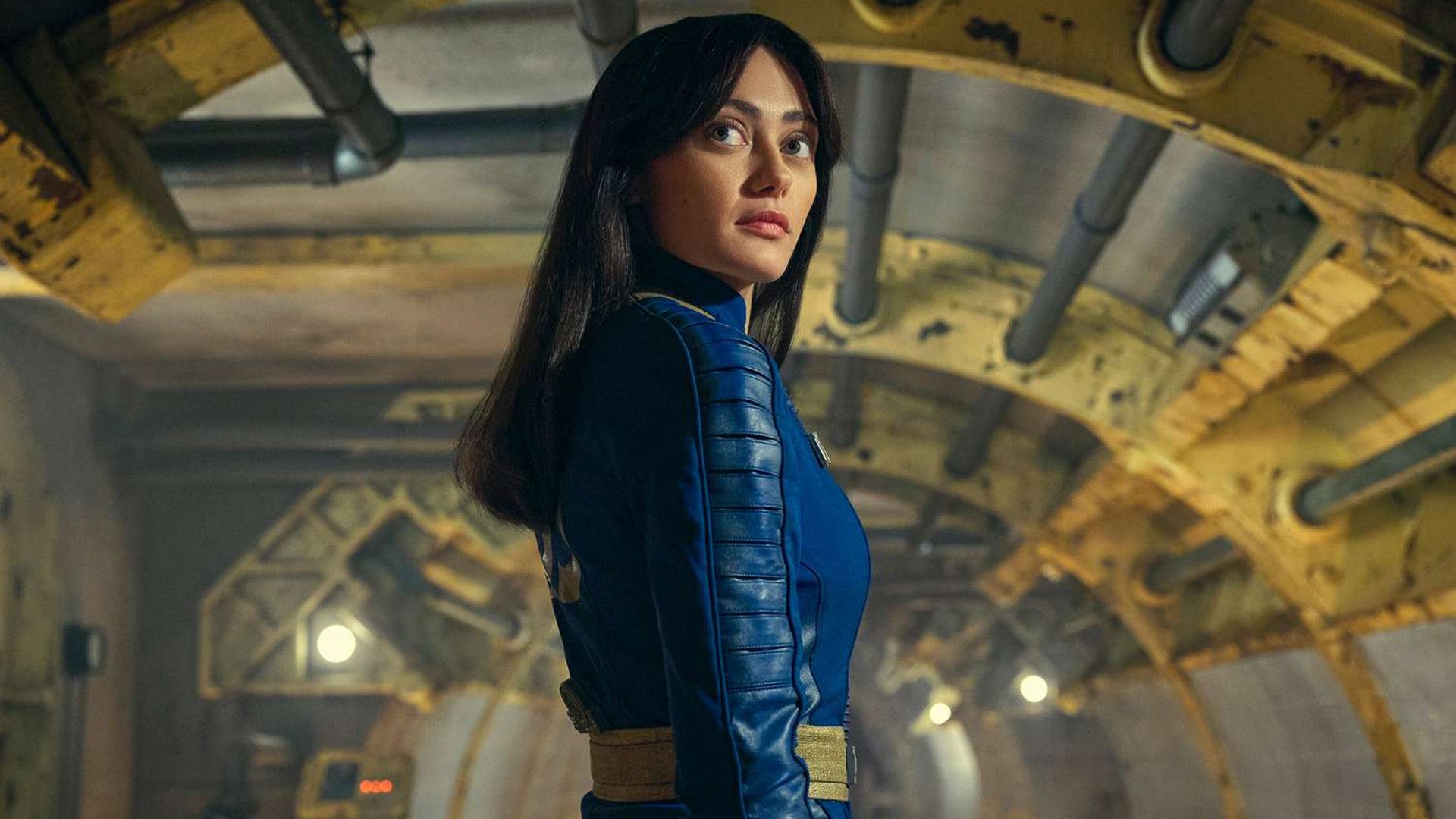The silly story of the Fallout games gives the show creators great freedom to go in any direction.

Blasting its way to Prime Video on April 10, 2024, Fallout is one of the hottest new TV shows of the year. Created by Graham Wagner and Geneva Robertson-Dworet, the 8-part series is based on the post-apocalyptic video role-playing game of the same name. Set 200 years after the Great War of 2077, Earth has been left in ruins by nuclear destruction, dividing the human survivors into underground vault dwellers and military leaders fighting for scarce resources.
While video game adaptations often get a bad rap and tend to foster low expectations among viewers, there is a kind of freedom in starting with a poorly conceived story and expanding it beyond fans’ wildest imagination. There is a self-aware playfulness to Fallout that recognizes how silly the baseline video game narrative is and self-reflexively pokes fun at the paper-thin plotting by prioritizing the immersive sandbox style of violence. Strangely, the lack of a compelling story in the Fallout games is why the TV adaptation works so well.
How Fallout Toys with Story Structure and Meta-Narrative

Given the main focus of the Fallout games and the low expectations of video game adaptations in general, the creators of the TV adaptation have been granted incredible leeway to open up the story in any direction they please. According to Slate, Fallout works well as a TV show because it isn’t beholden to the games’ “lousy story.” Instead, a high priority has been put on the TV show’s sprawling, open-world mayhem that aptly reflects the games’ shoot-em-up sandbox aesthetic. By focusing on the gritty, hyper-violent action first and foremost, the writers have more creative freedom to tinker with the story.
For example, the series’ first episode is titled “The End.” The plot begins at the end of human civilization as most know it, introducing Cooper Howard before he becomes a vengeful Ghoul following nuclear devastation. Meanwhile, the final episode is titled “The Beginning.” The finale concentrates on a gritty battle between Lucy and Moldaver’s forces. By starting with the end and ending with the beginning, the showrunners knowingly satirize the story structure of Fallout and poke fun at video game stories writ large. The fun of Fallout is that the story is inconsequential relative to the sheer joy of roving the landscape in 360 degrees with guns akimbo.
Using the Game’s Poor Storyline to Its Advantage

For many RPG players, main storylines are skippable or often never completed, and for good reason. Many RPGs boast generic storylines, dull protagonists, and forgettable NPCs that dole out wordy exposition that adds little to the overall narrative. The brilliance of the Fallout adaptation is that the creators know exactly who their fanbase is and what they want, and have deliberately put the story on the back burner to deliver immersive worldbuilding and breathless violence. The show is similar to Free Guy, where the unpredictable immersion of an RPG’s open-world setting takes precedence over the underlying narrative.
Early in the TV series, the Ghoul tells Lucy that there is a Golden Rule to abide by in the ravaged wasteland, stating, “Thou shalt get sidetracked by bulls*** every goddamn time.” The quip serves as an accurate mission statement for the show’s appeal, focusing more on inconsequential distractions of the environment rather than a dramatically satisfying plot. By beginning with a lackluster story from the source material, the creators have immense liberty to amplify the games’ popular strengths; engaging exploration and hyper-violent fighting. Being sidetracked in Fallout — both the games and the TV show — is a deliberate feature, not an accidental bug of the experiential appeal.
Will There Be a Fallout Season 2?

The first season of the sci-fi show Fallout became an instant commercial and critical hit. The show immediately became the #1 most-viewed TV show on Prime Video, snaring 65 million viewers in the first two weeks (as per Variety). The show also holds an 8.5 IMDb rating and a 93% Rotten Tomatoes score. With such popular success, Amazon announced that Season 2 of Fallout would be produced, although no release dates have been given (via Games Radar).
Ironically, for a show that relies less on storytelling than action-packed world navigation, Fallout Season 1 dangled viewers off a cliff in the finale. Lucy discovers a harrowing truth about her father that forces her to rethink her mission and allyship. Meanwhile, Moldaver suffers a tragic fate after activating a nuclear reactor. The story sets up a potential showdown between Lucy and Max when Season 2 of Fallout returns. Of course, the story isn’t the main draw for many Fallout gamers. Immersive exploration and environmental interaction are the primary attractions.





